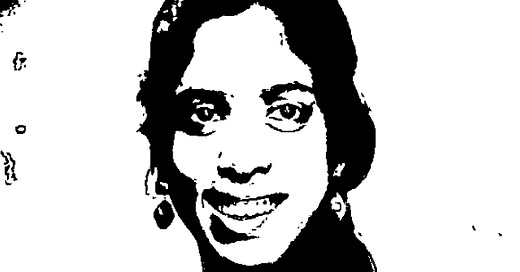She is resolute without the desire to justify or fit into someone else’s story.
And it shouldn’t be surprising.
The most successful politicians often write their own stories in such a way that the journalists following along are forced to concede the central premise. It’s why so many aspiring presidential candidates put out autobiographies several years in advance of their campaigns. But it’s difficult to maintain such control over the story, and most of the books fail to land.
Retired presidents often have better luck, and another shot at reclaiming the narrative. Barack Obama was the rare candidate who owned his story to such a degree that journalists (not trafficking in racism and nativism) largely followed his lead. His own reflections on his identity and upbringing were so compelling as to ring sincere rather than cloying.
He was in conversation with himself, even exorcizing demons, rather than testing out slogans. The 44th president’s “Dreams From My Father” was so successful, it created a narrative lane for future candidates. I was at the FleetCenter in Boston in 2004 when the then-state senator from Illinois stepped up to the mic and changed the game. For years, we political journalists turned to whoever was tapped to keynote the Democratic National Convention to decide whether we were looking at the next Barack Obama.
Ironically, Kamala Devi Harris’ star didn’t start to rise until she was given her own shot at the moniker. If she wanted it, it would have been hers. The headlines (“Meet the next Barack Obama”) were immediate, and the narrative was there. She respectfully declined, though at first it didn’t matter.
After a nail-biting victory to become California’s first Black and Asian American woman attorney general, many stories evoked the then-president. When she announced her Senate campaign a few years later, few profiles missed making the connection. That Kamala Harris wouldn’t play along has seemed at times to irritate those attempting to write her into history. Even after declaring her own candidacy for president in 2019, a Washington Post profiler seemed particularly put out that she wouldn’t just relent and run as “the new Obama.”
“If you don’t define yourself, people will try to define you. One of the first rules I taught my children is, don’t let anybody tell you who you are. You tell them who you are.” —Shyamala Gopalan Harris
To understand the man he was becoming, Barack Obama wrestled with the absence of his father. But to understand the woman she was becoming, Kamala Harris looked to a lifetime with her mother. And we don’t really know what to do with mothers and daughters—if they aren’t estranged; if they are bonded in the sort of way that wants for no outside identification.
Keep reading with a 7-day free trial
Subscribe to Our Women in the World to keep reading this post and get 7 days of free access to the full post archives.





